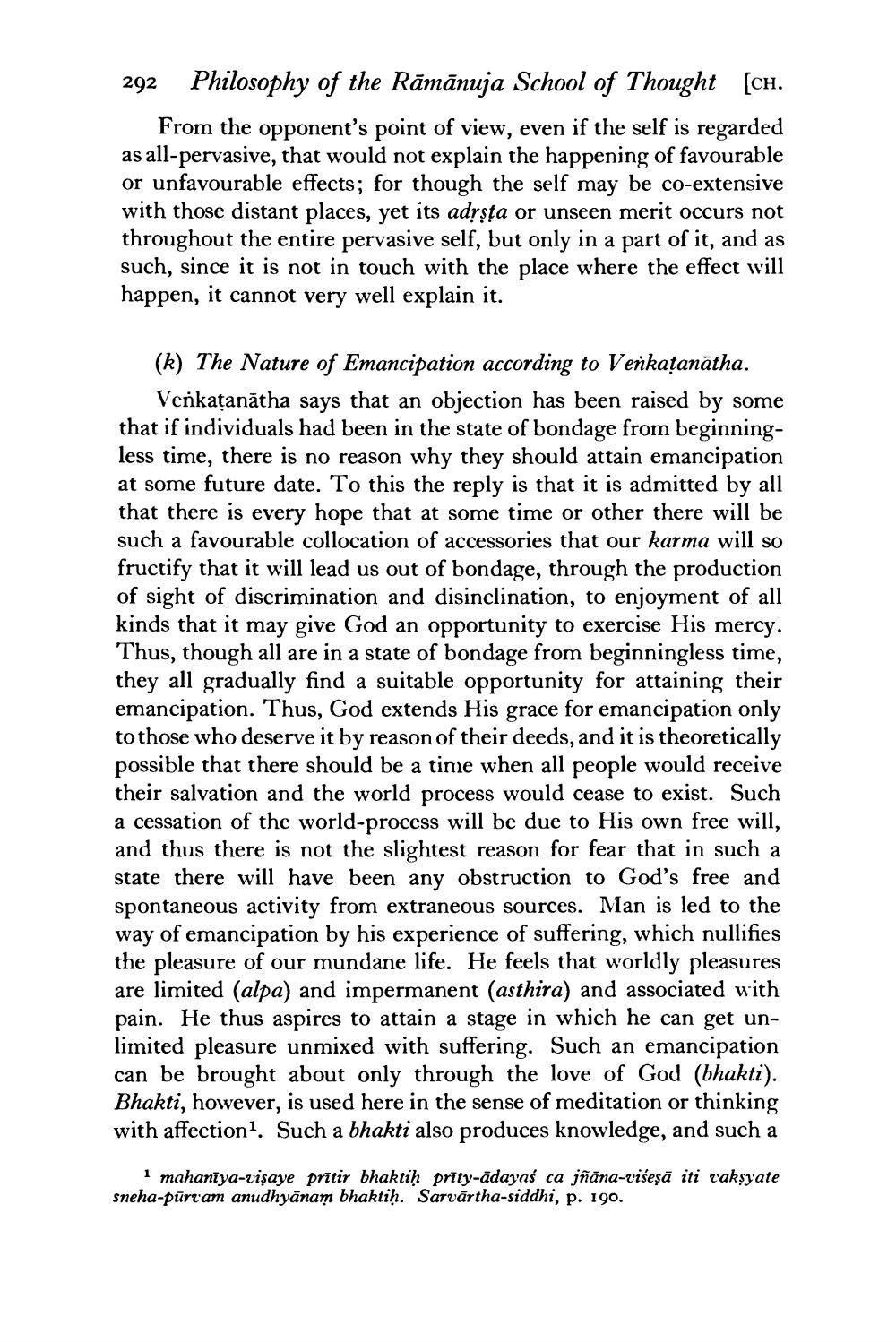________________
292 Philosophy of the Rāmānuja School of Thought [ch.
From the opponent's point of view, even if the self is regarded as all-pervasive, that would not explain the happening of favourable or unfavourable effects; for though the self may be co-extensive with those distant places, yet its adrsța or unseen merit occurs not throughout the entire pervasive self, but only in a part of it, and as such, since it is not in touch with the place where the effect will happen, it cannot very well explain it.
(k) The Nature of Emancipation according to Venkațanātha.
Verkațanātha says that an objection has been raised by some that if individuals had been in the state of bondage from beginningless time, there is no reason why they should attain emancipation at some future date. To this the reply is that it is admitted by all that there is every hope that at some time or other there will be such a favourable collocation of accessories that our karma will so fructify that it will lead us out of bondage, through the production of sight of discrimination and disinclination, to enjoyment of all kinds that it may give God an opportunity to exercise His mercy. Thus, though all are in a state of bondage from beginningless time, they all gradually find a suitable opportunity for attaining their emancipation. Thus, God extends His grace for emancipation only to those who deserve it by reason of their deeds, and it is theoretically possible that there should be a time when all people would receive their salvation and the world process would cease to exist. Such a cessation of the world-process will be due to His own free will, and thus there is not the slightest reason for fear that in such a state there will have been any obstruction to God's free and spontaneous activity from extraneous sources. Man is led to the way of emancipation by his experience of suffering, which nullifies the pleasure of our mundane life. He feels that worldly pleasures are limited (alpa) and impermanent (asthira) and associated with pain. He thus aspires to attain a stage in which he can get unlimited pleasure unmixed with suffering. Such an emancipation can be brought about only through the love of God (bhakti). Bhakti, however, is used here in the sense of meditation or thinking with affection?. Such a bhakti also produces knowledge, and such a
1 mahanīya-vişaye prītir bhaktih prīty-ādayaś ca jñāna-višeşā iti raksyate sneha-pūrvam anudhyānam bhakti”. Sarvārtha-siddhi, p. 190.




